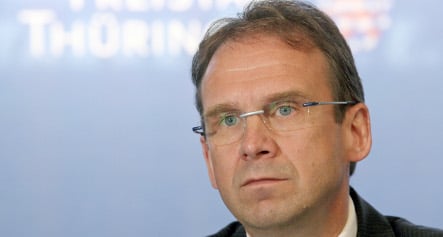Althaus has been convalescing since the New Year’s Day collision for which he was convicted of negligent homicide by an Austrian court and fined €33,300 for the death of Beata Christandl – a 41-year-old Slovakian woman.
“I admit my guilt and carry the responsibility,” Althaus said in a statement on Monday. “In these weeks I have painfully experienced how delicate life is, that we make mistakes and are dependent on forgiveness.”
His first day back on the job began with a Thuringia government meeting in the the state capital Erfurt. Althaus, a member of the conservative Christian Democratic Union (CDU) has been put at the top of his party’s list for the state election on August 30 despite an absence of some 100 days.
Three-quarters of Thuringia voters recently told regional broadcaster MDR that Althaus’ accident would not affect their choices at the polls. MDR also reported that his party could expect the most support from voters, though the CDU will likely not win the majority of votes.
“An exciting time lies ahead for me,” Althaus said. “I will put all of my efforts into a successful government for Thuringia and a successful campaign.”




 Please whitelist us to continue reading.
Please whitelist us to continue reading.
Member comments